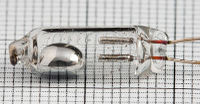Liquid
Liquids, along with gases and solids, are one of the states of matter. Specifically, liquids describe when matter is in a dense state that usually is fairly incompressible (which means it doesn't change volume when pressure increases, as opposed to gases which are generally compressible). Liquids have a density fairly close to that of the solid state of that material (within a few percent). Liquids are fluids, which means that they flow easily.
While most materials will turn into a gas if they get to a high enough temperature, many materials will skip the liquid phase entirely unless under sufficient pressure. For example, carbon dioxide goes straight from solid to gas form unless under a fair amount of pressure (this is why frozen carbon dioxide is called 'dry ice'). At sufficiently high temperatures and pressures, the differences between gases and liquids disappear to form a supercritical fluid.
The study of liquids includes a fair amount of fluid mechanics, which is relevant for both tidal power and hydroelectricity. To learn more about liquids please see UC Davis's Chem wiki.
PhET: States of Matter
The University of Colorado has graciously allowed us to use the following Phet simulation. Explore the simulation to see how states of matter change depending on temperature and pressure:
- ↑ Wikimedia Commons [Online], Available: https://commons.wikimedia.org/wiki/File:Mercury_Switch_without_housing.jpg


